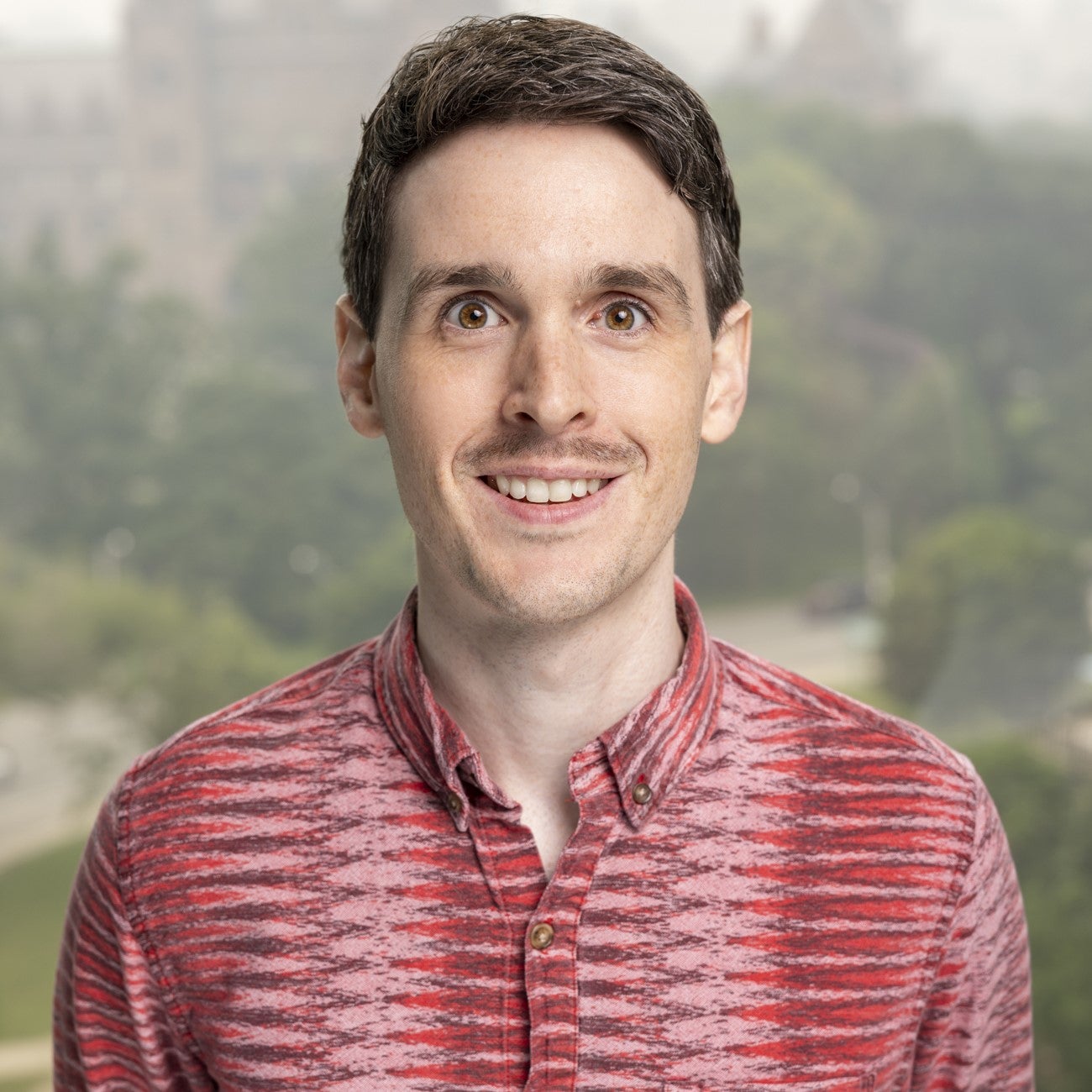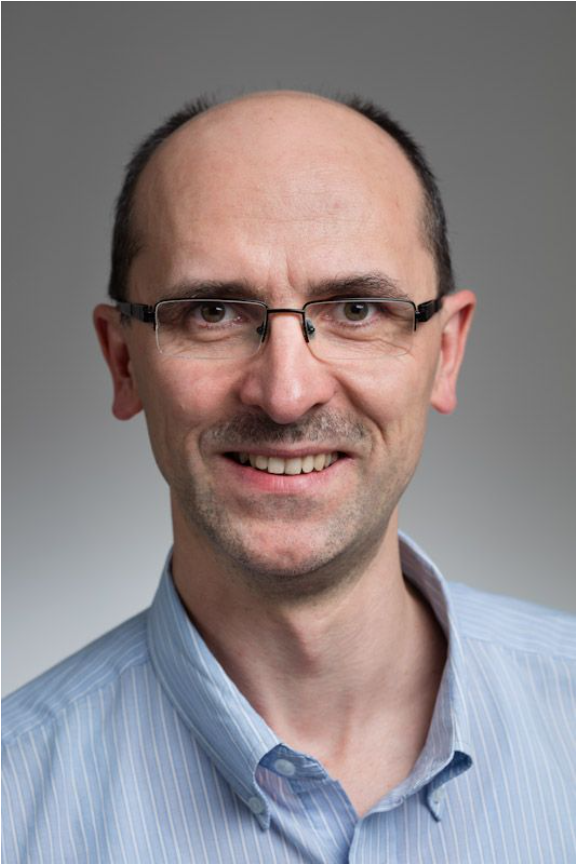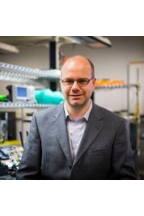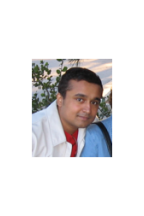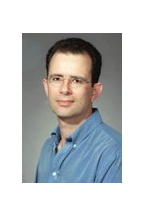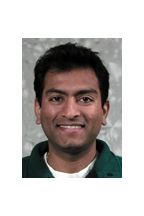Professor Information:
William (Bill) Bishop is the Director of Admissions for the Faculty of Engineering at the University of Waterloo. In this role, Bill is responsible for managing the Engineering Admissions Team working in the Engineering Undergraduate Office. This team processes all applicants to undergraduate engineering programs. This team also handles all transfers into first year undergraduate engineering programs.
Dr. Bishop has an appointment as a Continuing Lecturer in the Department of Electrical and Computer Engineering at the University of Waterloo. In this capacity, he teaches undergraduate courses in the areas of engineering design, digital design, and embedded systems. Dr. Bishop's research interests include engineering education, configurable computing, parallel and distributed systems, hardware and software co-design, embedded systems, and multimedia processing.
He has received recognition for his teaching, research, and service. He is a recipient of an Outstanding Performance Award in 2009, 2013, and 2020. He is a recipient of the James A. Field Teaching Excellence Award in 2006 and 2011. He was recognized with a Ontario Volunteer Service Award in 2019 for 15 years of service with the Waterloo Wellington Science and Engineering Fair. Dr. Bishop currently holds memberships with Professional Engineers of Ontario (PEO), Ontario Society of Professional Engineers (OSPE), the Canadian Engineering Education Association (CEEA), and the Institute of Electrical and Electronics Engineers (IEEE). He is a member of the Computer, Aerospace, and Education Societies of the IEEE.
-
Engineering admissions
-
Engineering education
-
Configurable computing
-
Parallel and distributed systems
-
Hardware / software co-design
-
Embedded systems
-
Image processing
-
Multimedia systems and applications
Mark Crowley is an Associate Professor in the Pattern Recognition and Machine Intelligence group in the Department of Electrical and Computer Engineering at the University of Waterloo. He received his Ph.D. and M.Sc. in Computer Science from the University of British Columbia working in the Laboratory for Computational Intelligence, and a B.A. in Computer Science from York University in Toronto. He did a postdoc at Oregon State University working with Tom Dietterich’s machine learning group.
Dr. Crowley's research focusses on algorithms, tools and theory at the intersection of Machine Learning, Optimization and Probabilistic Modelling. In particular he is interested in the challenges for traditional machine learning and optimization algorithms that arise in domains with spatial dynamics and very large amounts of data. He often works in collaboration with researchers in other fields such as sustainable forest management, ecology and resource economics. He is an active part of building the interdisciplinary Computational Sustainability research community and blogs on this topic as well as democratic reform and the impact of AI technology on society.
-
Artificial Intelligence
-
Machine Learning
-
Reinforcement Learning
-
Decision Making Under Uncertainty
-
Probabilistic Graphical Models
-
Causal Modeling
-
Big Data Analytics
-
Optimization
-
Game Theory
-
Autonomous Driving
-
Medical Imaging
-
AI for Science
-
Material Design
-
AI for Video Games
Elliot Creager is an Assistant Professor in the Department of Electrical and Computer Engineering at the University of Waterloo. He is also a Faculty Affiliate at the Vector Institute for Artificial Intelligence and the Schwartz Reisman Institute for Technology and Society. He works on a variety of topics within machine learning, more specifically in the areas of algorithmic fairness, representation learning, and robustness. Dr. Creager received his PhD from the University of Toronto, and was an intern and student researcher at Google Brain in Toronto during his graduate studies.
-
Artificial Intelligence
-
Machine Learning
-
Out-of-distribution Robustness
-
Algorithmic Fairness
-
Representation Learning
-
Sequential Decision Making
-
Causal Inference
Krzysztof Czarnecki is a professor in the Department of Electrical and Computer Engineering and is cross-appointed to the School of Computer Science. He leads the Waterloo Intelligent Systems Engineering Lab at the University of Waterloo.
Dr. Czarnecki’s research specializes in generative software development. His expertise includes model-driven software engineering, including software-product lines and variability modeling, consistency management and bi-directional transformations, and example-driven modeling.
He held the NSERC Bank of Nova Scotia Industrial Research Chair in Requirements Engineering of Service-Oriented Software Systems. He co-authored the book “Generative Programming” (Addison- Wesley, 2000), which deals with automating software component assembly based on domain-specific languages. Professor Czarnecki received the Premier’s Research Excellence Award in 2004 and the British Computing Society in Upper Canada Award for Outstanding Contributions to the IT Industry in 2008. In 2023, Dr. Czarnecki was awarded a University Research Chair.
- Generative programming, Model-based development, Software system families and product lines, Software design, Computer Engineering, Software Engineering, Autonomous and connected car, Automotive, Cybersecurity, Infrastructure integrity
More information coming soon!
-
Programming languages
-
Software engineering
-
Software correctness and robustness
-
Dependability
-
Cybersecurity
-
Internet of Things
Sebastian Fischmeister is a Professor in the Department of Electrical and Computer Engineering and cross-appointed to the Cheriton School of Computer Science at the University of Waterloo.
Dr. Fischmeister performs systems research at the intersection of software technology, distributed systems, and formal methods. His preferred application area includes distributed real-time embedded systems in the domain of automotive systems, avionics, and medical devices. Key highlights of his research include a framework for scalable location-based pervasive computing systems and tree communication schedules for verifiable but flexible real-time communication. A slightly modified version of his real-time communication framework has been used for the plug-and-play demonstration of medical devices and to promote the ASTM F29.21 standard. He is now working on (a) information extraction of time-sensitive systems, (b) using data analytics of extracted information for system validation and security, (c) runtime monitoring of safety-critical systems, and (d) reliable and robust performance evaluation of embedded systems.
- Real-time systems, Embedded systems, Software technology, Embedded networking, Computer engineering, Software engineering, Autonomous vehicles, Autonomous and connected car, Big data/analytics, Sensors and devices, Safety-critical Systems, Automotive, Operational Artificial Intelligence, Robotics, Cybersecurity, Infrastructure integrity, Network security, Operational security
Dr. Vijay Ganesh is a professor of computer science at the Georgia Institute of Technology. Prior to joining GeorgiaTech in 2023, Vijay was an associate professor at the University of Waterloo in Canada from 2012 to 2023 and a research scientist at the Massachusetts Institute of Technology from 2007 to 2012. Vijay completed his PhD in computer science from Stanford University in 2007.
Vijay's primary area of research is the theory and practice of SAT/SMT solvers, and their application in AI, software engineering, security, mathematics, and physics. In this context he has led the development of many SAT/SMT solvers, most notably, STP, Z3str4, AlphaZ3, MapleSAT, and MathCheck. He has also proved several decidability and complexity results in the context of first-order theories. More recently he has started working on topics at the intersection of learning and reasoning, especially the use of machine learning for efficient solvers, and the use of solvers aimed at making AI more trustworthy, secure, and robust. For his research, Vijay has won over 30 awards, honours, and medals to-date, including an ACM Impact Paper Award at ISSTA 2019, ACM Test of Time Award at CCS 2016, and a Ten-Year Most Influential Paper citation at DATE 2008.
- SAT/SMT solvers and higher-order provers, Software engineering, Formal methods, Automated testing, Program analysis, Computer security, Mathematical logic, Foundations of mathematics
Wojciech Golab is a Professor in the Department of Electrical and Computer Engineering at the University of Waterloo.
His research interests include parallel and distributed data structures, scalable in-memory storage and transaction processing, relaxed and eventual consistency models, synchronization algorithms for multi-core computers, distributed computing theory and cloud computing.
ACM Computing Reviews listed one of Dr. Golab's papers on shared memory algorithms among 91 others in the "notable computing items published in 2012". Dr. Golab has received sponsorship from Hewlett-Packard Labs, Google, and Cisco.
- Algorithms, Big data analytics, Blockchain, Cloud computing, Concurrency, Data structures, Dependability, Distributed systems, Energy-efficient computing, Fault tolerance, Internet of Things, Multi-core, Parallelism, Persistent memory, Relaxed consistency models, Scalability, Shared memory, Storage systems, Theory and complexity, Transaction processing
Guang Gong is a Professor in the Department of Electrical and Computer Engineering, a University Research Chair, and an IEEE Fellow. Her research focuses on multiple areas such as design and implementation of lightweight cryptographic systems, cryptography and cryptanalysis; security and privacy of Internet-of-Things (IoT), privacy of blockchain and blockchain based IoT security, privacy preserving machine learning, security in cloud, network, ad-hoc network and RFID systems; wireless security, multimedia security, and physical layer security. Her research also lies in and signal design for wireless Code Division Multiple Access (CDMA), Orthogonal frequency-division Multiplexing (OFDM) and Multiple-Input Multiple-Output (MIMO) communications. In 2005, Dr. Gong, together with former Ph. D student Yassir Nawaz, proposed a new stream cipher, namely, a WG stream cipher family, which offers unique randomness properties that other ciphers do not have. Recently, together with Professor Mark Aagaard, some lightweight instances (i.e., WG-5, WG-7, WG-8) of this stream cipher family have been implemented in hardware for securing RFID systems and embedded devices. In Feb 2019, her team submitted 4 lightweight cryptographic schemes, i.e., ACE, SPOC, SPIX, and WAGE to the NIST LWC competition.
- Pseudorandom sequence generation, Implementation of lightweight cryptographic systems, Lightweight cryptography, cryptography and cryptanalysis, Security algorithms and protocols, Security and privacy of IoT, blockchain, and cyber physical systems, Privacy preserving machine learning, Wireless communications\/networking, Cross layer and physical layer security
More information coming soon!
Amir-Hossein Karimi is an Assistant Professor in the Department of Electrical and Computer Engineering at the University of Waterloo, and a Vector Institute Faculty Affiliate. Prior to joining Waterloo, he gained extensive industry experience at Meta, Google Brain, and DeepMind, and provided AI-consulting services to numerous startups and incubators.
Professor Karimi’s research focuses on advancing the state of the art in artificial intelligence and charting the path for trustworthy human-AI symbiosis. His research interests include: the development of systems that can recover from or amend poor experiences caused by AI decisions, evaluation of the safety, factuality, and ethics of AI systems to foster trust in AI, and effectively combining human and machine abilities. His research explores the intersection of causal inference, explainable AI, and program synthesis.
Professor Karimi’s work has been showcased at esteemed AI and ML-related platforms such as NeurIPS, ICML, AAAI, AISTATS, ACM-FAccT, and ACM-AIES. His contributions to the field of algorithmic recourse have been acknowledged by these platforms through spotlight and oral presentations, as well as through a book chapter and a highly regarded survey paper in the ACM Computing Surveys.
-
Artificial intelligence
-
Machine learning
-
Explainable AI
-
Causal inference
-
Algorithmic Recourse
-
Counterfactual Explanations
-
Program Synthesis
-
Human-Machine Teaming
-
Human-Machine Collaboration
Patrick Lam is an Associate Professor and cross-appointed to the School of Computer Science at the University of Waterloo.
Professor Lam’s research interests include static program analysis, verifiable software specifications, data mining, renewable energy and software engineering. He believes that his research “aims to give developers ways to automatically link high-level designs to low-level implementations, through the use of programming language extensions” (Patrick Lam, http://patricklam.ca).
Professor Lam has received multiple grants for his research efforts from the Natural Sciences and Engineering Research Council of Canada, including the NSERC Engage Grant in 2013 worth $25,000. He also has a current ongoing NSERC Discovery Grant from 2013 to 2018 worth $20,000 a year.
Additionally, Professor Lam has been recognized for his paper, “Soot – A Java Optimization Framework” by the Centre for Advanced Studies Conference hosted by IBM as a First Decade High Impact Paper in 2010. He has written many other published works for a variety of sources.
- Program verification, Static analysis, Specification languages, Program understanding, Pointer analysis, Compilers, Lightweight specifications, Verifiable domain-specific languages, Software engineering, Verifiable software specifications, Infrastructure integrity
Kshirasagar Naik is a Professor in the Department of Electrical and Computer Engineering at the University of Waterloo. He has also been a member of IEEE since 1994.
His research interests include computer network protocols, wireless and mobile communication systems, sensor networks, peer-to-peer networks, cognitive radio systems and energy saving in hand-held devices and data centers. Delay tolerant networks, body-area networks, mHealth (mobile health) and eHealth applications, vehicular networks, and intelligent transportation systems are also areas of research that interest Professor Naik.
-
Mobile and ad hoc networks
-
Low power software
-
Optical networks
-
Communication & Information Systems
-
Mobile Communication and Computing
-
Sensor Networks/AMR
-
Energy-cost Modeling of Wireless Applications
-
Green Applications of Information Technology
-
Intelligent Transportation Systems
-
Distributed and Network Computing
-
Multimedia Synchronization
-
Testing Communication Protocols
-
Connectivity and Internet of Things
-
Cybersecurity
-
Infrastructure and integrity
-
IoT
-
Devices
-
Application Domains
-
Networking and Data
-
Dependability and security
Chrystopher Nehaniv is a full professor in the departments of Systems Design Engineering and Electrical and Computer Engineering at the University of Waterloo (since August 2018). He is a Mathematician, Computer Scientist, Complex Adaptive Systems Researcher. He is also affiliated with the University of Hertfordshire in the United Kingdom, where he served as Director of the Centre for Computer Science & Informatics Research prior to coming to Canada, leading research in the Algorithms, Adaptive Systems, and Wolfson Royal Society Biocomputation Research Groups there as Professor of Mathematical and Evolutionary Computer Sciences. Previously, he held positions as full professor at the University of Aizu in Japan, and visiting professor in Mathematics at Ibaraki National University, Japan, and at the Institute for Mathematics & Informatics at the University of Debrecen in Hungary, as well as post-doctoral research fellow and lecturer in Mathematics at the University of California, Berkeley. He is founder of the Waterloo Algebraic Intelligence & Computation Laboratory (WAICL), and with Prof. Kerstin Dautenhahn, a co-founder of the University of Waterloo's Social and Intelligent Robotics Research Laboratory (SIRRL). Professor Nehaniv is also a member of the Waterloo AI Institute and the steering committee of the Waterloo Institute for Complexity and Innovation (WICI). He serves as Associate Editor for the journals BioSystems, IEEE Transactions on Cognitive and Developmental Systems, Interaction Studies, and Complexity, and previously as Topic Editor-in-Chief of the International Journal of Advanced Robotic Systems for the topics of AI Robotics and Human-Machine/Robot Interaction, and has served on the IEEE Task Force for Artificial Life and Complex Adaptive Systems since its founding in 2003, as Chair (2012-2018), Vice Chair (2018-), and on the IEEE Cognitive and Developmental Systems Technical Committee (2019-) of the IEEE Computational Intelligence Society.
-
Algebraic Methods in Algorithms & Applications
-
Artificial Intelligence
-
Artificial Life & Complex Adaptive Systems
-
Algebra & Discrete-Event Dynamical Systems:
-
Automata, Permutation Groups, Transformation Semigroups, Interaction Machines, Models of Time
-
Systems Biology & Neuroscience: Mathematical & Computational Methods
-
Gene-Regulatory Networks & Differentiated Multicellularity
-
Interactive Systems Design
-
Cognitive Architectures for AI Robotics
-
Enactive Experiential & Temporally Extended Intelligence
-
Evolvability
-
Cognitive\/Social\/ Skill & Linguistic Development in Animals & Artifacts
-
Dynamic Networks
-
Whole-Part Relations\/Natural Subsystems
-
Global Hierarchical Coordinate Systems for Understanding\/Prediction\/Manipulation in STEM
Rodolfo Pellizzoni is a Professor in the Department of Electrical and Computer Engineering at the University of Waterloo.
His main research focus is the development of new hardware and software architectures for Cyber-Physical Systems - the next generation of high-performance, safety-critical embedded systems. Due to the requirements imposed by these systems in term of performance, safety and timing predictability; it is a multidisciplinary effort involving embedded system architecture and hardware/software co-design, real-time resource management, timing analysis and operating systems.
In addition to his research work, Dr. Pellizzoni has published over 50 refereed journal articles, refereed conference proceedings, workshop publications and technical reports.
- Embedded Systems Architectures, Cyber-Physical Systems, Real-Time Operating Systems and Resource Management, autonomous and connected car, Connectivity and Internet of Things, Automotive, cybersecurity, Infrastructure integrity, IoT, Devices, Dependability and security
Derek Rayside is an Associate Professor in the Department of Electrical and Computer Engineering and is cross-appointed to the School of Computer Science at the University of Waterloo. He is the Faculty Advisor for Watonomous, the autonomous vehicle student design team in the SAE AutoDrive Challenge. Professor Rayside also taught the inaugural SE Ideas Clinic Activity in the Fall 2018 term.
His research interests include software engineering, lightweight formal methods, visualization, verification, specification, programming languages, static and dynamic program analysis, and software design extraction or reverse engineering. Additionally, Professor Rayside’s interests also include: engineering design – comprised of decision support, design evolution and multi-objective optimization, autonomous vehicles, and blockchain, specifically verification of Smart Contracts.
He has published in venues such as the ACM/IEEE International Conference on Software Engineering (ICSE), the ACM/IEEE International Conference on Automated Software Engineering (ASE), the International Conference on Abstract State Machines, Alloy, B, TLA, VDM, and Z (ABZ), and the ACM International Conference on Generative Programming: Concepts & Experience (GPCE).
-
Software engineering
-
debugging
-
lightweight formal methods
-
visualization
-
verification
-
specification
-
programming languages
-
static and dynamic program analysis
-
software design
-
extraction\/reverse engineering
-
Engineering Design
-
decision support
-
design evolution
-
multi-objective optimization
-
Cybersecurity
-
Infrastructure integrity
-
autonomous vehicles
-
blockchain, specifically verification of Smart Contracts
Tahsin Reza is an Assistant Professor in the Department of Electrical and Computer Engineering at the University of Waterloo. Prior to joining Waterloo, Tahsin was a member of the research staff at the Center for Applied Scientific Computing, Lawrence Livermore National Laboratory in California.
Tahsin’s research interests are broadly in the area of parallel and distributed software systems. He investigates systems techniques, both at the application and middleware level, for contemporary and emerging data-intensive problems that demand scalable and timely solution. His focus is building performant and scalable yet sustainable systems that harness state-of-the-art distributed platforms, hardware accelerators, distributed communication, and memory technologies. Tahsin’s work has been published in prestigious computer science journals: ACM TOPC, IEEE TPDS, Elsevier JPDC, and showcased at competitive venues: ACM SIGMOD, IEEE/ACM SC, IEEE IPDPS, IEEE BigData, IEEE Cluster.
-
Parallel and Distributed Computing
-
Multi-core and GPU Computing
-
Distributed Middleware
-
High-Performance Network Protocols
-
Large-scale Data Systems
-
Big Data Analytics
-
Graphs and Unstructured Data
-
Systems Solutions for Scalable Machine Learning
Weiyi (Ian) Shang is an Associate Professor in the Department of Electrical and Computer Engineering at the University of Waterloo.
Professor Shang's general research area is Software Engineering. In particular, his research interest includes software engineering for ultra-large-scale systems, software log mining, empirical software engineering, mining software repositories and performance engineering.
Ladan Tahvildari is a Professor in the Department of Electrical and Computer Engineering at the University of Waterloo. She is also a Visiting Scientist with the Centre for Advanced Studies at the IBM Toronto Laboratory, as well as a member of CSER, a Canadian Consortium for Software Engineering Research.
Professor Tahvildari's general research interests are in the field of software engineering, and to date her focus has spanned the areas of software architecture, autonomic computing, security, and software analysis and testing. The underlying theme of her research has been to devise techniques and tools that aid with the construction, analysis, and maintenance of large-scale software systems.. She founded the Software Technologies Applied Research Laboratory (uwaterloo.ca/software-technologies-applied-research-laboratory/) at the University of Waterloo in 2004. With her research team, she has published widely on these topics and collaborated extensively with high-tech companies and non-profit organizations to ensure real-world applicability of her research contributions. Various awards have recognized her research accomplishments including prestigious Ontario Early Researcher Award in Canada.
Professor Tahvildari is a member of the Association for Computing Machinery (ACM), ACM Special Interest Group on Software Engineering (SIGSOFT), and the Institute of Electrical and Electronics (IEEE) and very active in IEEE committees. She has been an elected Member-at-Large (2016-2018) for the IEEE Technical Council of Software Engineering (TCSE), and the 2018 TCSE Awards Chair. She is currently a Member-at-Large of the IEEE Technical Activities Committee (TAC). Professor Tahvildari has been on the program and organizing committees of several international conferences including Publications Chair of ICSE’19 (Montreal) and C0-Chair of ICSME’17 Most Influential Paper Awards (Shanghai). She also has over 10 years of experience as Chair of the IEEE Women in Engineering (WIE) Affinity Group, Kitchener-Waterloo Section. Professor Tahvildari is a fellow of the Canadian Academy of Engineering.
-
Software Architecture
-
Autonomic Computing
-
Security
-
Software Analysis and Testing
Lin Tan is an Associate Professor at the University of Waterloo. She received her PhD from the University of Illinois, Urbana-Champaign.
She is an associate editor of IEEE Transactions on Software Engineering (2017-present) and an editor of the Springer Empirical Software Engineering Journal (2015-present). She was the program co-chair of MSR 2017, ICSE-NIER 2017, and ICSME-ERA 2015. Dr. Tan’s co-authored papers have received an ACM SIGSOFT Distinguished Paper Award at MSR in 2018, FSE in 2016, and IEEE Micro's Top Picks in 2006. Dr. Tan is a recipient of an NSERC Discovery Accelerator Supplements Award, an Ontario Early Researcher Award, an Ontario Professional Engineers Award — Engineering Medal for Young Engineer, a University of Waterloo Outstanding Performance Award, two Google Faculty Research Awards, and an IBM CAS Research Project of the Year Award.
-
Software engineering
-
Software reliability
-
Defect detection and repair
John Thistle is an Associate Professor in the Department of Electrical and Computer Engineering at the University of Waterloo. He is currently a member of the Waterloo Formal Methods (WatForm) research group, which studies applications of formal methods in hardware design and software engineering.
Professor Thistle’s research interests include control of discrete event systems, formal synthesis and verification of discrete event systems, and applications to software development. He is also focusing on the decidability and complexity of the synthesis of centralized and distributed controllers. Potential applications occur not only in traditional control engineering areas but also, for example, in the design of distributed software systems.
- Control of discrete event systems, Formal synthesis, verification of discrete event systems, software development, Communication & Information Systems, Cybersecurity, Infrastructure integrity
Mahesh V. Tripunitara is a Professor in the Department of Electrical and Computer Engineering at the University of Waterloo. He has had previous industry experience including four years in software development at Silicon Valley, and three years in research with the Security and Privacy Technology Lab at Motorola's corporate R&D Labs.
Since 2013, Professor Tripunitara has been a Program Committee member at conferences such as the ACM Conference on Computer and Communications Security (CCS), the ACM Conference on Data and Application Security and Privacy (CODASPY), and the ACM Symposium on Access Control Models and Technologies (SACMAT).
Professor Tripunitara’s main research area of interest is information security and his projects involve both fundamental and applied aspects. He has completed work in authorization and access control, cryptographic key transport, secure payments, usable security, and security and reliability of computer hardware.
Professor Tripunitara has written and published many papers including Securing Computer Hardware Using 3D Integrated Circuit (IC) Technology and Split Manufacturing for Obfuscation, which won the Best Student Paper award at the 22nd Usenix Security Symposium, and Least-Restrictive Enforcement of the Chinese Wall Security Policy, co-written with his Ph.D. graduate Alireza Sharifi, which won the Best Paper Award at the 18th ACM SACMAT.
- Computer & Software Engineering, Information security, Authorization and access control, Cryptographic key transport, Secure payments, Usable security, Security and reliability of computer hardware, Connectivity and Internet of Things, Cybersecurity, Application security, Privacy and cryptography, Information security, IoT, Dependability and security
Kami Vaniea is an Associate Professor in the Department of Electrical and Computer Engineering at the University of Waterloo. Professor Vaniea's research interests are in the human factors of security and privacy. The goal of her work is to increase accessibility of security and privacy technologies for a wide range of users including end users, developers, and system administrators. Professor Vaniea's recent projects include: developer-centered privacy, dynamic phishing advice, smart speaker bystander privacy, understanding barriers to software update installation, and people's misunderstanding of Twitter's privacy settings.
-
Usable Security and Privacy
-
Cybersecurity
-
Human-Computer Interaction
-
Information Security
-
Authorization and Access Control
-
Internet of Things
-
System Administration
Paul Ward is an Associate Professor in the Department of Electrical and Computer Engineering at the University of Waterloo. He is also a faculty fellow at the IBM Centre for Advanced Studies.
Professor Ward’s expertise lies in the area of distributed systems and computer networks. In distributed computing, his work focuses on distributed-application management, and more generally on dependable and self-managing distributed systems, with a recent focus on fault detection and diagnosis in Web Services. Professor Ward’s work in networks focuses on raising the abstraction level of the network from one of packet delivery to a service-oriented network, specifically concentrating on problems of service discovery, and the problem of semantic coupling, both of functional and non-functional attributes. He has also studied problems of capacity and fairness in wireless mesh networks and routing in delay-tolerant networks.
Professor Ward co-holds two patents; ‘Brokering Web Mobile Services’ which provides a novel mobile web services discovery method that is capable of fulfilling the requirements from both the clients and providers. His second patent is a ‘Method for Solving Application Failures using Social Collaboration’ in which a computer-implemented method, system and computer usable program code for solving an application failure using social collaboration are provided.
- Distributed systems management, Dependable distributed systems, Autonomic computing, Peer-to-peer computing, Wireless mesh, Mobile ad hoc networks, Communication Systems, Information Systems, Computer Engineering, Software Engineering, Connectivity and Internet of Things, IoT, Devices, Application Domains, Communications and Access, Networking and Data, Dependability and security
Seyed Zahedi is an Assistant Professor in the Department of Electrical and Computer Engineering at the University of Waterloo. His research focuses on the intersection of computer architecture, computer systems, and theoretical computer science.
General fields of application of the research program include:
-
Operating systems
-
Embedded systems
-
Software engineering (particularly formal verification and static analysis)
-
Distributed systems
-
Computer security


